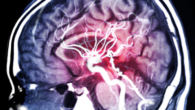
Oncology: pain in four areas of the body can signal a deadly disease
1
Symptoms of cancer are often vague and mistakenly attributed to everyday ailments. However, there are several ways to distinguish cancer-related pain from everyday pain.
According to the National Cancer Institute (NCI), pain often occurs in different parts of the body when you engage in certain activities.
>
For example, pain when urinating or after eating can signal a potentially fatal disease.
As for the latter, this pain is usually characterized as heartburn or indigestion that does not go away. Stomach or mouth pain can also indicate cancer.
Common signs of cancer include:
- Very bad night sweats
- Unexplained weight loss
- An unusual lump or swelling anywhere
- Fatigue
How to respond
According to the NHS, if something looks or feels wrong, or if you think you might have cancer, don't ignore it talk to your doctor.
Symptoms that last for three weeks or more, is a red flag that should be checked.
“Although it is unlikely to be cancer, it is important to speak to your GP so they can investigate. If your GP suspects cancer, they will refer you to a specialist, usually within two weeks.
According to Macmillan Cancer Support, around one in three cases of the most common cancers (around 33 per cent) can be prevented by eating a healthy diet , maintaining a healthy weight and leading a more active lifestyle.









Leave a Reply